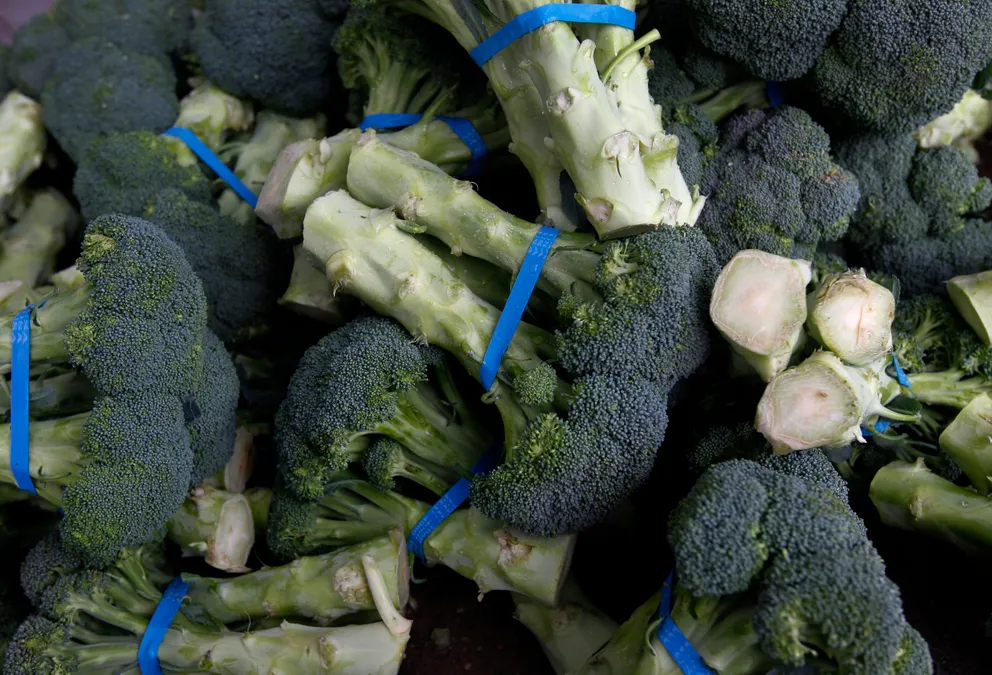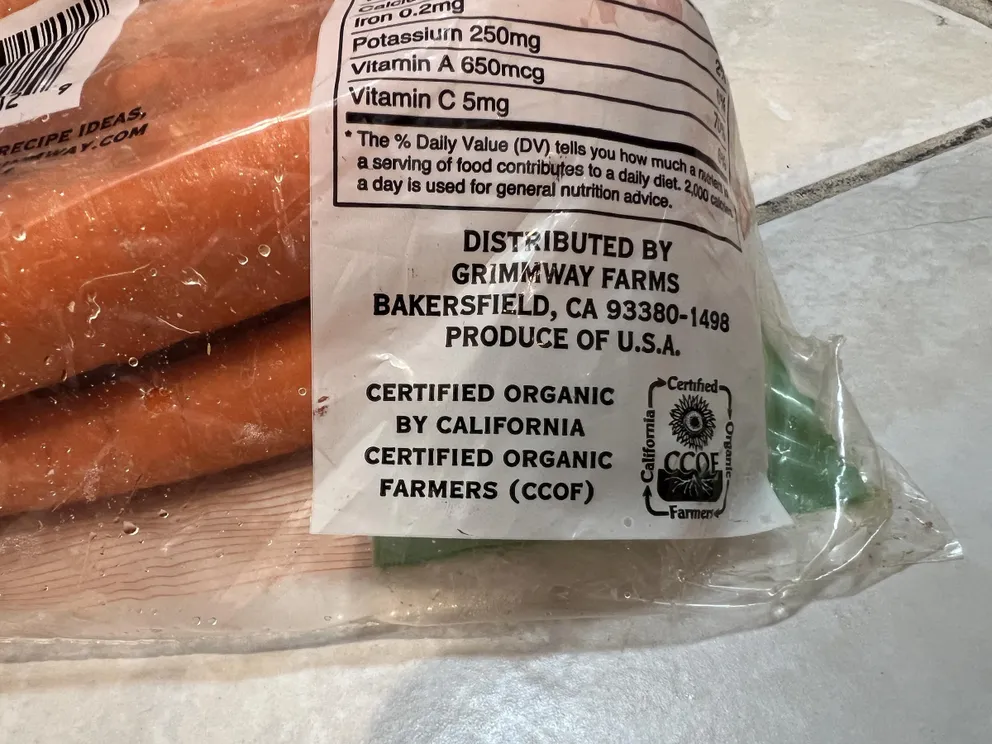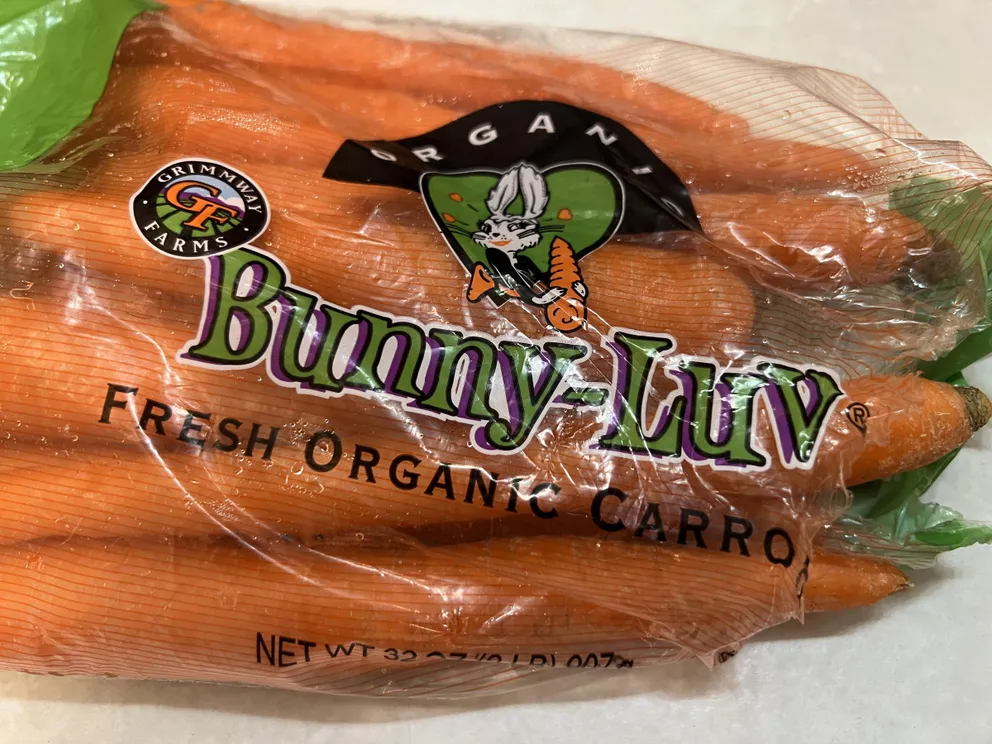A vegetable product sold at Walmart in many states has been recalled due to possible bacterial contamination. If you’ve bought it, you need to act quickly—either return it or throw it away immediately!

The U.S. Food and Drug Administration (FDA) has issued a Class I recall for Marketside Broccoli Florets (12 oz.) after testing found that it could be contaminated with Listeria monocytogenes, a harmful bacteria. This type of contamination can cause serious health problems.
The recall was announced on December 27, 2024, after 5,918 cases of the broccoli were sold across several states.
The recalled packages have the label “BEST IF USED BY DEC 10 2024” and include the code BFFG327A6 13:56. It was discovered when Texas Health & Human Services tested broccoli from a Walmart store in Texas. One sample tested positive for the bacteria, which led to the recall. Luckily, no illnesses have been reported yet, but health experts are warning customers to be careful.
The FDA has labeled this a Class I recall, which is the most serious kind. This means there is a “reasonable probability that the use of, or exposure to, a violative product will cause serious adverse health consequences or death,” according to the agency.
Listeria monocytogenes can cause dangerous infections, especially for young children, the elderly, and those with weakened immune systems. It can lead to symptoms like fever, headache, nausea, stomach pain, and diarrhea. For pregnant women, it’s even more serious, as it can lead to miscarriage or stillbirth.
🚨RECALL ALERT🚨: A recall over Walmart-sold broccoli has been escalated to the highest threat levelhttps://t.co/DtreuuMwSF
— PIX11 News (@PIX11News) February 3, 2025
This product was sold in Walmart stores in 20 states, so many customers might have bought it. The affected states include Alaska, Arkansas, Arizona, California, Colorado, Idaho, Illinois, Indiana, Kentucky, Louisiana, Michigan, Montana, Nevada, Ohio, Oklahoma, Oregon, Texas, Utah, Washington, and Wyoming. If you bought this broccoli, you should not eat it.
Instead, either throw it away or return it to the store where you bought it. The company, Braga Fresh Foods LLC, has reached out to retailers with alerts through email, phone, press releases, and even direct visits to the stores.
The FDA is keeping an eye on the situation as the recall is still active, making sure no more contaminated products are out there.
But that’s not all! There’s been another recall, this time for organic carrots that could also be contaminated. On November 17, 2024, both the Centers for Disease Control and Prevention (CDC) and the FDA warned about a new E. coli outbreak linked to organic carrots. This recall affects multiple sizes of whole and baby carrots distributed by Grimmway Farms.
OUTBREAK: Investigation of E. coli O121:H9 in bagged organic whole & baby #carrots from Grimmway Farms. The voluntary recall is of multiple sizes & brands. Products are likely no longer available for sale in stores – check your refrigerator. Full list> https://t.co/4hPELJXa7d
— U.S. FDA Human Foods Program (@FDAfood) November 18, 2024
Grimmway Farms had already announced the recall on November 16, 2024, but the CDC cautioned that some of the recalled carrots might still be in people’s homes, even though they’re no longer on store shelves.

They advised consumers to check their refrigerators for any of the recalled carrots, even if they had already bought them earlier. These carrots should either be thrown away or returned to the store.

The recalled carrots came in a variety of well-known brands, including 365, Bunny Luv, Cal-Organic, Compliments, Full Circle, Good & Gather, GreenWise, and Marketside. If you have any of these products in your home, it’s crucial to take action now to avoid infection.

Businesses that sold the affected carrots were also warned not to sell them, and were advised to clean and sanitize any surfaces that might have come into contact with the recalled products.
Grimmway Farms Recalls Organic Whole and Select Organic Baby Carrots That May Be in Consumers’ Homes Due to Potential E. coli Contamination https://t.co/kcnABGhfpD pic.twitter.com/vTGSI0z6Cd
— U.S. FDA Recalls (@FDArecalls) November 18, 2024
With food safety always a concern, the FDA and CDC continue to monitor these situations. Keep an eye on your food products and always check for recalls to keep your family safe!
E. Coli Outbreak: 39 people are sick in 18 states. Check your homes for recalled bagged organic carrots. Do not eat recalled carrots. Throw them away. Carrots currently on store shelves are not affected. See the notice for a full list of brands of carrots.https://t.co/lzD2Z1SEAw pic.twitter.com/dL4KpqmZr1
— CDC (@CDCgov) November 17, 2024
The recall of organic carrots has caused a major stir in stores across the country. Customers who purchased baby organic carrots should pay attention to this recall.
Some of the most popular brands affected by the recall include Nature’s Promise, O-Organic, President’s Choice, Raley’s, Simple Truth, Sprouts, Trader Joe’s, Wegmans, and Wholesome Pantry.
An E. coli outbreak tied to organic whole and baby carrots from Grimmway Farms has affected 39 people across 18 states, resulting in 15 hospitalizations and one death, according to the CDC.
— ABC News (@ABC) November 19, 2024
Read more: https://t.co/BuXUEfmgdc pic.twitter.com/fqwq5t3ayk
These carrots, sold with best-if-used-by dates from September 11 to November 12, 2024, are being pulled from shelves due to a dangerous contamination.
But it doesn’t stop there. The whole organic carrots, which didn’t have specific best-if-used-by dates listed, were also affected. These carrots were on store shelves between August 14 and October 23, 2024. The brands linked to this recall are the same as those for the baby carrots.
A deadly E. coli outbreak has been linked to organic carrot from Grimmway Farms, sold at many major chains.
— ABC News Live (@ABCNewsLive) November 18, 2024
“Throw them away immediately,” @ErielleReshef warns.
"Sanitize any surfaces they may have touched." pic.twitter.com/ZpbZclr8qV
The contamination with E. coli has led to a public warning that people should not eat these carrots and instead dispose of them or return them to the store.
This recall comes after an outbreak of E. coli infections that has impacted 18 states. The CDC has confirmed that there have been 39 reported illnesses, with 15 people being hospitalized and, tragically, one death. The outbreak’s last reported case occurred on October 28, 2024, but authorities are still monitoring the situation closely.
⚠️ OUTBREAK: Investigation of E. coli O121:H9 in bagged organic whole & baby #carrots from Grimmway Farms. The voluntary recall is of multiple sizes & brands. Products are likely no longer available for sale in stores – check your refrigerator. Full list> https://t.co/4hPELJWChF pic.twitter.com/Xv1JivF611
— U.S. FDA Human Foods Program (@FDAfood) November 18, 2024
The affected states are scattered across the U.S., including Arkansas, California, Colorado, Massachusetts, Michigan, Minnesota, Missouri, North Carolina, New Jersey, New York, Ohio, Oregon, Pennsylvania, South Carolina, Texas, Virginia, Washington, and Wyoming.
In interviews with 27 individuals who fell ill, 26 of them (or 96%) had eaten carrots in the week before they started feeling sick. This solidified the connection to the recalled product.
The CDC even provided a case count map showing that some areas, like Minnesota, New York, and Washington, had higher numbers of infections, while other states like Wyoming, California, and Texas had more spread-out cases.
So, what’s behind this scary recall? The recalled carrots were contaminated with a dangerous strain of E. coli called Shiga toxin-producing Escherichia coli (E. coli) O121:H19. This strain of bacteria is known for causing severe and sometimes life-threatening infections.
Health experts are especially concerned because the infection can be particularly dangerous for young children, the elderly, and those with weakened immune systems. In extreme cases, the infection can cause kidney failure or even death.
Common symptoms of an E. coli infection include intense stomach cramps, bloody diarrhea, fever, nausea, and vomiting. These symptoms usually show up within three to four days of exposure to the bacteria. Most people recover within five to seven days, but some may develop serious complications, like kidney problems, which require hospitalization.
The CDC urges anyone experiencing severe symptoms, such as dehydration, persistent diarrhea, or a fever over 102°F, to seek medical care right away.
E. coli bacteria are often found in food, water, and the intestines of both humans and animals. While most strains are harmless and even beneficial to digestion and the immune system, some can be very dangerous. People can get infected by consuming contaminated food or water, or even by coming into direct contact with infected animals or people.
People who are particularly vulnerable to these infections include older adults, children under the age of 5, pregnant women, and individuals with weakened immune systems. The CDC has provided helpful tips on how to prevent E. coli infections, focusing on proper food handling, cleanliness, and water safety.
One of the most important steps to prevent E. coli is frequent handwashing. According to the CDC, you should wash your hands for at least 20 seconds with soap and water before, during, and after preparing food, and always after handling raw ingredients like meat, poultry, or eggs. It’s also important to thoroughly clean kitchen surfaces, utensils, and cutting boards with hot, soapy water between uses to avoid cross-contamination.
Another key piece of advice is to always wash fresh fruits and vegetables under running water before eating them. Keeping raw meats, poultry, seafood, and eggs separate from other foods is critical too. Using separate cutting boards for raw and ready-to-eat items can help prevent bacteria from spreading. And don’t forget to store raw foods in sealed containers to stop any juices from leaking.
When it comes to cooking food, it’s essential to make sure that it reaches the right internal temperature to kill harmful bacteria. The CDC recommends using a food thermometer to check the temperature of cooked meats. They suggest specific temperatures like 145°F for whole cuts of meat, 160°F for ground meats, and 165°F for poultry and leftovers.
Perishable foods should be refrigerated quickly—within two hours, or one hour if the temperature is above 90°F—and kept at 40°F or below to slow down bacterial growth. When camping or traveling, make sure any water you drink is properly treated to avoid contamination. If you’re swimming in lakes, ponds, or pools, avoid swallowing the water, and never swim if you have diarrhea.
Lastly, always check that milk, juices, and dairy products are pasteurized, as this process kills harmful germs like E. coli and makes them safer to consume.
By following these simple but effective steps, you can reduce your risk of E. coli infection and protect yourself and your loved ones from foodborne illnesses. Stay safe, stay informed, and always take food safety seriously!


